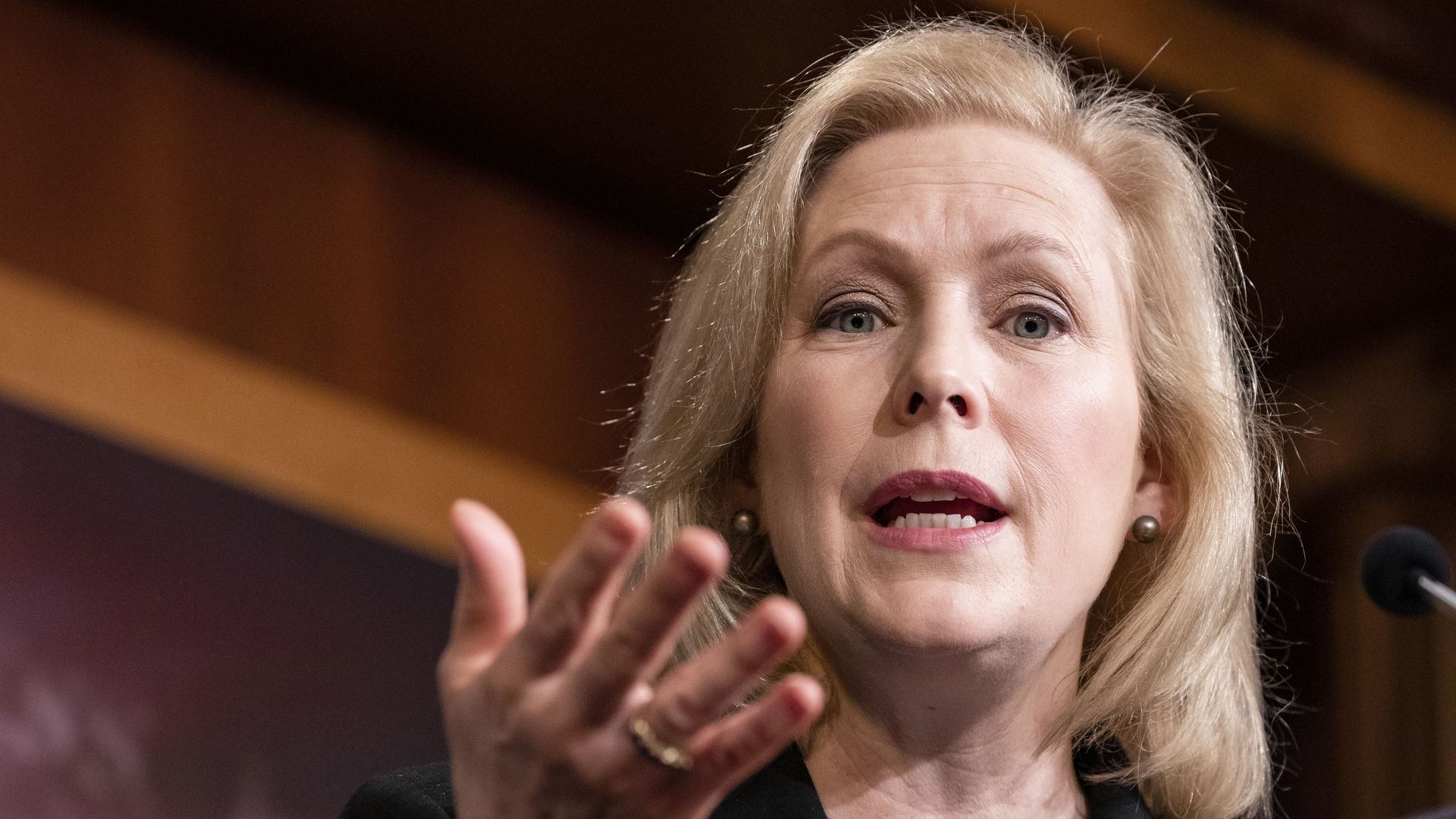Gillibrand proposes new Data Protection Agency
Add Axios as your preferred source to
see more of our stories on Google.

Senator Kirsten Gillibrand. Photo: Samuel Corum/Getty Images
Sen. Kirsten Gillibrand (D-N.Y.) is introducing a bill that would create the Data Protection Agency, a new federal agency with the authority to ensure businesses are transparent about data collection and the power to enforce violations.
Why it matters: The U.S. has fallen behind Europe and some states in regulating data and privacy issues, with responsibility split among several agencies, including the FCC, FTC and DOJ.
Details: In a statement, Gillibrand said that the agency would have a director appointed by the president and confirmed by the Senate and would have the ability to "investigate, subpoena for testimony or documents, and issue civil investigative demands" it would also be able to set rules, issue orders and represent the U.S. in global efforts. At the same time, Gillibrand said "the authority of state agencies and state attorneys general are preserved."
Between the lines: The move comes amid a global dialogue on privacy and just as Britain hands its communications regulator more authority over Internet content.
Reality check: Gillibrand isn't alone in her desire. A pair of California Democrats introduced legislation last year that would also establish a new digital regulator. However, neither the bipartisan staff draft on privacy in the House nor the dueling Democratic and Republican takes on privacy by the leaders of the Senate Commerce Committee include the creation of a new agency.
What they're saying:
- Gillibrand: "As the data privacy crisis looms larger over the everyday lives of Americans, the government has a responsibility to step forward and give Americans meaningful protection over their data and how it’s being used."
- Robert Weissman, President, Public Citizen: "Along with new privacy laws that protect individual access to courts and don’t scuttle the importance of the states, having a DPA is necessary to protect consumers in the digital age.”
- Katharina Kopp, deputy director, Center for Digital Democracy: "The FTC has totally failed to protect the public for many years — regardless of which party has been in power. We applaud Senator Gillibrand’s proposal, which if enacted, could help ensure that our digital rights are protected in the U.S.”
Separately: A new bill from Sen. Jeff Merkley and Sen. Cory Booker would set limits on federal government use of facial recognition, absent a warrant. The ACLU called it "a good first step" but said the bill has too many exceptions and "fails to fully account for the realities of this mass surveillance tool."
Editor's note: This story has been corrected to report that the senator proposing facial recognition legislation is Jeff Merkley (D-Oregon), not, as we incorrectly first reported, Ed Markey (D-Mass.).
